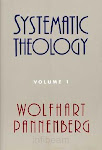4 weeks ago
Monday, 3 March 2008
Is "doing the right thing" difficult?
It is often said that doing “the right thing” is difficult. This of course implies that doing “the wrong thing” is the easy way out. I’ve always agreed with this, but there’s another way to look at it.
If “easy” refers to the specific action, for instance, in giving into a certain temptation, then I would agree. It is “easy” to just give into the temptation (whatever it is) when the alternative requires battle - battle of mind and of actions. To use an example. Say you want to cheat (either in an exam or your spouse). In one way this is easy. You don’t have to go through the pains of studying or self-sacrificing love. So doing the “wrong thing” (cheating) is easier. Doing the “right thing” (honesty or faithfulness) is difficult.
But in another way this couldn’t be further from the truth. How so? It’s simple really.
If “easy” refers to, not the specific action, but to life in its totality, then the opposite is true. Doing the wrong thing is difficult and doing the right is easy. Cheating in an exam is difficult, i.e. life becomes difficult: you don’t really learn what you’re supposed to, and you might even get caught. Being unfaithful is difficult, i.e. life becomes difficult: you hurt your spouse and yourself (even if you don’t get caught), and rebuilding the trust and love may be an overwhelming task.
One can put this in another way. Doing the wrong thing is easy in the short run (just give in), but difficult in the long run. Doing the right thing may be difficult in the short run (requires battle), but much easier in the long run.
Subscribe to:
Post Comments (Atom)







4 comments:
Somewhat unrelated, but I recently bumped into this passage:
“If you do well, will you not be accepted? And if you do not do well, sin is crouching at the door.” Gen 4:7 (ESV)
Just not doing the right thing is not quite enough. So, maybe even leaving the right thing undone is difficult in the long run?
(Don't know if it relates to your post, really. It just was a kind of revelation to me, so I figured I'll share it.)
I think it's very relevant Jussi. There are sins of omission too. As regards these, using the logic of this post:
Omitting a good deed is sometimes easy in the short term but may prove disastrous in the long term, whereas omitting an evil deed is sometimes difficult in the short term but may prove liberating in the long term.
Sound reasonable?
Wonderful analysis!
I might add: it depends on your character/virtues. The unvirtuous will find it difficult to do right. Whereas it is relatively easy for the virtuous, because doing right is almost "second nature" (sic!) to him.
And vice versa.
The question is: how do you get to the stage where doing the right thing is relatively easy? Like you said, Jason: in the short run, you need to struggle against your weaknesses.
Well, I suppose you need to keep struggling all your life... But that's because you want to become still better. Character is never fixed, you either go up or down.
Seems like joining the blogosphere was the right move after all.
One gets help from one's peers and one's betters in reflecting. Both you Oskari and Jussi added a new layer/dimension to these thoughts.
I really enjoyed that virtue aspect. It is a nice reminder of the dynamism of ethical action.
Thank you!
Post a Comment